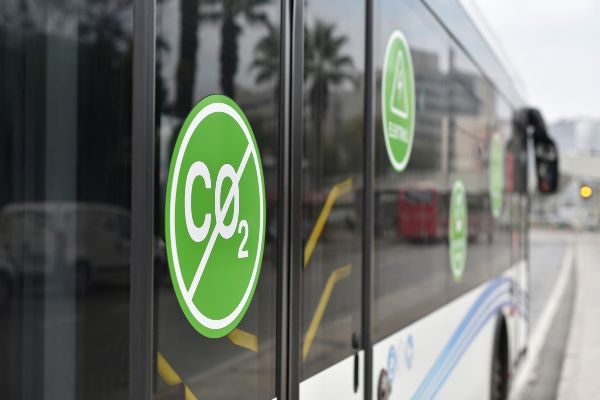Operating range has always been a parameter in vehicle scheduling but has not been restrictive until recently.
The introduction of vehicles with alternative fuel sources (battery electric, hydrogen, gas) presents a schedules challenge as range is not as great, and can be more variable, compared to the diesel buses they replace.

With national, regional and local government having environmental and decarbonisation strategies all major bus operators are investing in alternative fuels. Government funding has been available to assist with the investment required to cover the additional costs of these vehicles and associated infrastructure.
With range now a restrictive parameter, operators need tools to help produce vehicle workings with oversight of range. In addition, vehicle schedules must also have awareness of opportunities to recharge, in the case of electric vehicles (EVs), and reflect the impact this has on the available range of each bus.
What operators should consider
Managing range can be done manually by the scheduling team but requires transferring data into spreadsheets to calculate distances travelled, equate that to fuel depletion and factor in any refuel or recharge opportunities. This can be a time-consuming, repetitive and iterative process – and not the most efficient use of resource.
Furthermore, it is recognised that technology is improving and as this matures vehicle range will increase. Simultaneously, it is known that an EV’s battery degradation reduces range over time.
One important factor is that range can be affected by seasons; more fuel is required in the winter to power heating and lighting for instance. Also, high consumption routes may require more vehicles to reduce the range across the buses than those in rural areas. Where recharge or refuel is required during the day, branded routes – routes operated by buses in specific colours or branding – can become diluted by operating vehicles in the regular brand in order to optimise vehicle workings. The alternative may be that additional vehicles are required to maintain route branding which, of course, adds further cost to the operation.
These dynamics show that maximum vehicle range is not a constant, it changes over time between vehicle types and routes. Therefore, a solution must be flexible enough to work around these dynamics.
Efficiently dealing with range-related issues
When accommodating alternative fuel vehicles into a schedule there are several different considerations. Firstly, the best thing an operator should do is start planning early and consider all the options and permutations available.
Next is how to deal with any range-related issues. For EVs this could be about how and where recharging takes place. Is it opportunity charging at a terminus or depot charging? Then how do vehicles get to a charging or refuelling point? It might be that changing the way driver reliefs occur can facilitate recharge/refuel opportunities.
This point is not exclusive to EVs, hydrogen fuelling infrastructure is not commonplace and vehicles may be required to visit a separate off-site location for fuel. Here, the challenge for bus operators is deciding how and when this fits the vehicle and crew schedules.
Operators should also consider whether they can make better use of their vehicles. Particularly whether ‘peak only’ workings could be utilised all day to create time in the schedule for recharging or to reduce the average distance worked across other vehicles. Of course, the operator may then need to consider the impact on their maintenance schedules.
Conclusion
It is important for operators to plan their vehicle workings effectively to get the most efficient use out of their new alternative fuel vehicles without running out of juice. Alternative fuel vehicles are more expensive than standard diesel buses, so it is important to minimise the number of vehicles required.
Therefore, a range of tools are required to assist schedulers when planning vehicle workings that can assist their role in making sure schedules are deliverable within the parameters of an alternative fuel vehicle.
How Omnibus can help
With over 30 years’ experience in software and consultancy services, Omnibus enables passenger transport operators to model operable and cost-effective schedules for limited range vehicles, and provides support with decarbonisation strategies – see Oxford Bus Company.
Omnibus’ scheduling, staff rostering, depot allocation, timetable construction and publicity software solutions are trusted by public transport operators and local authorities, and implemented in mainland Europe, the Middle East, East Asia, Australia and New Zealand.
To discuss your alternative fuels scheduling and planning requirements, please contact us on 0161 683 3100 or complete the online form.
